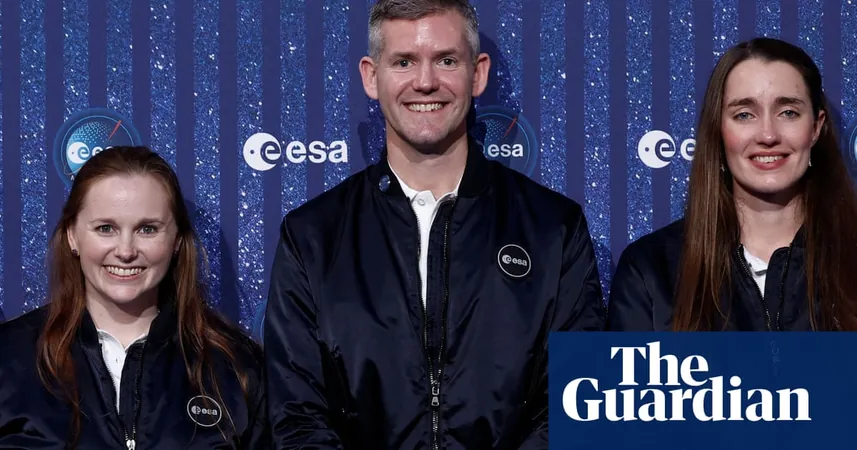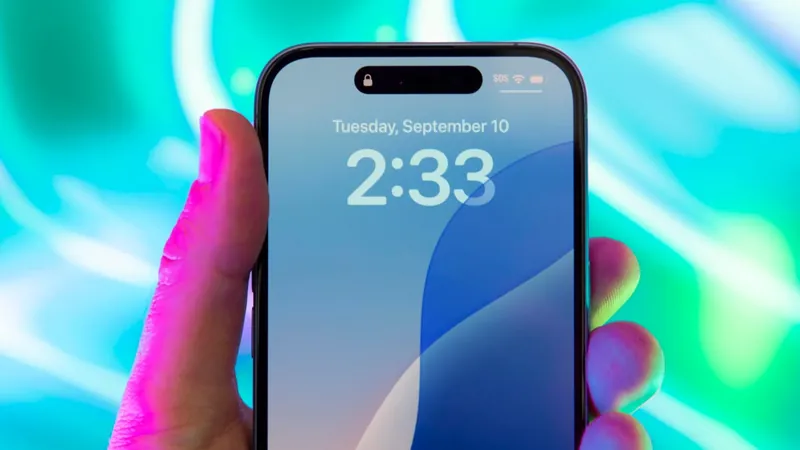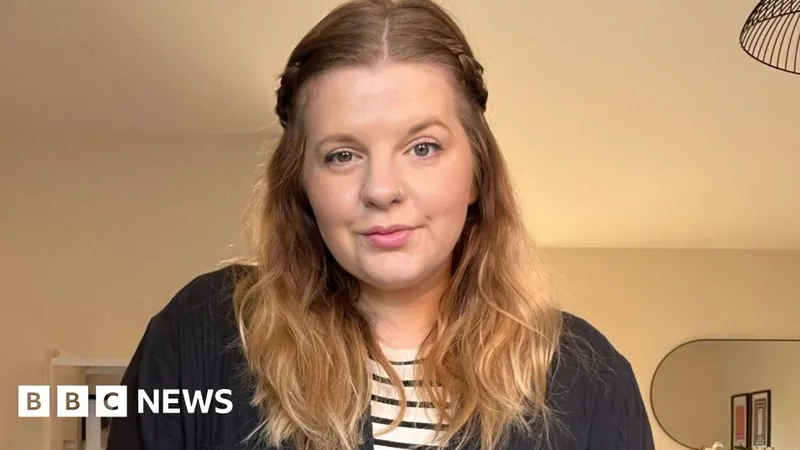
John McFall's Bold Journey to Become the First Astronaut with a Disability
2024-10-07
Author: Emily
When John McFall received a job advertisement for aspiring astronauts from a colleague, his immediate reaction was one of enthusiasm. "To be honest, all I had in my head was: ‘It would be awesome to go to space,’" he recalled. However, embarking on this extraordinary journey meant overcoming a significant barrier that has persisted for over sixty years in space exploration.
Fast forward three years since he first came across the European Space Agency’s (ESA) job posting, McFall is now on the cusp of making history as the world’s first astronaut with a disability. His journey is nothing short of remarkable; after losing his right leg in a motorcycle accident at the age of 19, he transformed his life, becoming a Paralympian sprinter who earned bronze in the Beijing Games, and later establishing a career as a trauma and orthopedic surgeon.
Determined to break through the glass ceiling, McFall immersed himself in ESA's rigorous selection process, navigating through challenging stages that included extensive psychomotor tests and panel interviews. In 2022, ESA announced his inclusion in a groundbreaking initiative aimed at exploring whether individuals with physical disabilities can not only survive but thrive in the harsh environment of space.
In an optimistic interview, McFall, now 43, expressed excitement about his journey: "A common response is, ‘Why hasn’t this been done sooner?‘" However, McFall's path to outer space is not secured yet. ESA is methodically assessing his readiness for a six-month mission aboard the International Space Station (ISS) to gather vital data, illuminating how someone with a physical disability can adapt to the unique challenges that space presents.
“It's not that people have said, ‘you can’t do it; it’s not possible.’ It’s more that they’re saying, ‘we don’t doubt this is possible, it’s just that no one has done it before,’” McFall explained. The focus of the tests includes how he would maneuver and maintain stability in microgravity, as well as how his prosthetic limb would cope with the conditions of space.
Encouragingly, preliminary findings suggest that space flight is indeed a viable option for McFall, igniting hope that he or similarly disabled individuals could receive training for upcoming missions. "I would hope that between 2027 and the end of this decade, we’ll see a European astronaut with a physical disability as part of the ISS crew," he remarked.
While McFall's assessments are unique to him, the overarching goal of the initiative is to create pathways for others with disabilities. “We’re challenging the narrative surrounding physical disability,” McFall emphasized. “And doing that creates discussions and diminishes stigma.”
An important aspect of these discussions centers on how to refer to McFall himself. Since starting with ESA, he has been advocating for a shift away from the label "parastronaut." "I think it’s useful to have a conversation about it. What does it mean?" he pondered, further asserting, “I’m not a para-surgeon; I’m a surgeon. I’m not a para-dad; I’m a dad.” He expressed concern over the potential negative impacts of the prefix “para,” suggesting it could perpetuate unnecessary divides.
McFall's groundbreaking efforts come at a crucial time when people with disabilities worldwide often face discrimination and economic hardships, with data revealing that they are more likely to be unemployed or live in poverty within the EU. By reshaping the public's perception of what an astronaut can be, McFall aspires to foster greater opportunities for individuals with disabilities across multiple professions.
“My mission is to ensure that people have a well-rounded and accurate understanding of disability and what it means to be disabled,” he shared, reminding us that our perspectives must evolve beyond outdated stereotypes. “It’s not the kind of 1950s, 1920s version of being disabled, you know?”
As McFall prepares to take on this incredible challenge, he stands not only as a beacon of hope for others with disabilities but also as a revolutionary figure in the quest for inclusivity in one of humanity's greatest frontiers. Keep an eye on this inspiring journey—history is on the horizon!









 Brasil (PT)
Brasil (PT)
 Canada (EN)
Canada (EN)
 Chile (ES)
Chile (ES)
 España (ES)
España (ES)
 France (FR)
France (FR)
 Hong Kong (EN)
Hong Kong (EN)
 Italia (IT)
Italia (IT)
 日本 (JA)
日本 (JA)
 Magyarország (HU)
Magyarország (HU)
 Norge (NO)
Norge (NO)
 Polska (PL)
Polska (PL)
 Schweiz (DE)
Schweiz (DE)
 Singapore (EN)
Singapore (EN)
 Sverige (SV)
Sverige (SV)
 Suomi (FI)
Suomi (FI)
 Türkiye (TR)
Türkiye (TR)